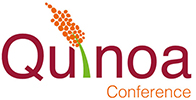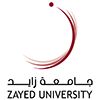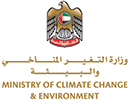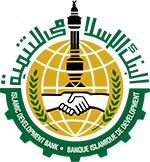Under the patronage of Her Excellency Sheikha Lubna bint Khalid Al Qasimi, Minister of State for Tolerance of the UAE and President of Zayed University

Dubai Declaration
DUBAI DECLARATION ON THE PRODUCTION OF QUINOA FOR THE FUTURE FOOD AND NUTRITION SECURITY IN MARGINAL ENVIRONMENTS
8 December 2016
Preamble
At the initiative of the Food and Agriculture Organization of the United Nations (FAO) and country members, the General Assembly of the United Nations declared 2013 as the International Year of Quinoa, recognizing that, through their knowledge and practices, the Andean indigenous peoples have maintained, controlled, protected and preserved quinoa in its natural state, including its numerous landraces and local crop wild relatives, as food for present and future generations.
Climate change is forecast to impact negatively on global and national efforts to ensure food, nutrition and water security, and end poverty, as set out in the United Nations Sustainable Development Goals (SDGs). Marginal environments, including those affected by salinity, will be impacted the most. It is critical, therefore, to exert more efforts towards developing climate change adaptation and mitigation strategies for marginal environments. Given the challenges posed by climate change in relation to traditional agricultural methods and crops, the focus should be on drought-, heat- and salt-tolerant crops.
Today, quinoa has been adapted in more than one hundred countries and different agro-ecological conditions. Given its high nutritional value, it can be an important ally in addressing food and nutrition security needs of the world’s rapidly growing population. Due to its ability to withstand severe salinity and water scarcity conditions, quinoa can be successfully grown in the marginal areas where other crops are unable to produce good economic returns. It can be used to supplement existing food crop systems, strengthen the resilience of smallholder farmers to the negative impacts of climate change, and contribute to the achievement of SDG 1 (poverty reduction), SDG 2 (ending hunger) and SDG 13 (climate actions), among others.
An international conference on “Quinoa for Future Food and Nutrition Security in Marginal Environments” was convened in Dubai, UAE, on December 6-8, 2016. It was organized by the International Center for Biosaline Agriculture (ICBA) in collaboration with the Ministry of Climate Change and Environment of the United Arab Emirates, Zayed University, the Islamic Development Bank (IsDB), the Arab Bank for Economic Development in Africa (BADEA) and FAO. Held at Zayed University, the conference brought together participants from 46 countries, comprising leading scientists, practitioners and decision-makers from the public and private sectors.
Whereas, the conference participants recognized that the demand for quinoa production is increasing significantly around the world because of its excellent nutritional value and its resilience to drought and salinity;
Whereas, the conference participants recognized the importance of global cooperation and collaboration for upscaling the production of quinoa through research and development related to identification, preservation and exchange of germplasm to ensure benefits to farmers, local communities and consumers;
FAO, ICBA and the rest of the consortium of stakeholders call for:
- Strengthening partnerships with relevant stakeholders such as public institutions, universities, associations of farmers, and the private sector, including investors;
- Setting up a coherent global quinoa research and development program to assist national agriculture research systems (NARS), with a particular focus on those in the NENA region, with the exchange of knowledge and experiences, along with adaptive agronomic practices;
- Applying the international standard transfer material agreement for quinoa genetic resources access and exchanges to facilitate innovation;
- Discussing potential collaborative work on quinoa seed development to produce registered commercial seeds;
- Developing an awareness strategy along the quinoa value chain pathway.
It was therefore:
Agreed that a multi-year research and development initiative be launched to introduce, popularize and commercialize quinoa in marginal environments for improving livelihoods in marginal environments;
Agreed that this initiative be coordinated by ICBA with the technical assistance of FAO and multi-stakeholders;
Agreed that ICBA, with assistance of the consortium, develop the concept note and the proposal with inputs from stakeholders for submission to selected donors.
Finally, the participants agreed that international collaboration and building of global networks are an efficient way to provide the knowledge required to help make quinoa a success for future food and nutrition security in marginal environments.
Download
| English version | |
| Arabic version |









